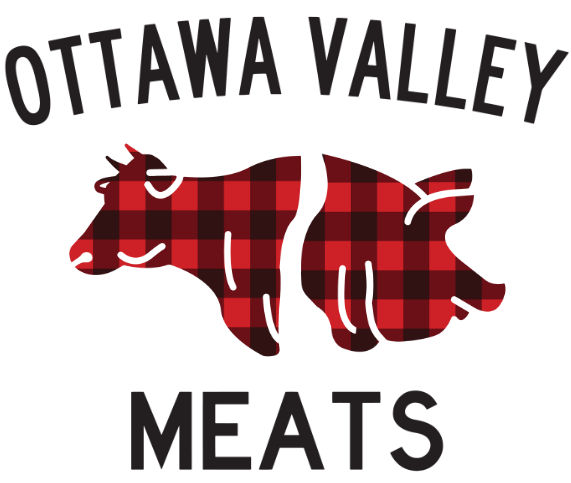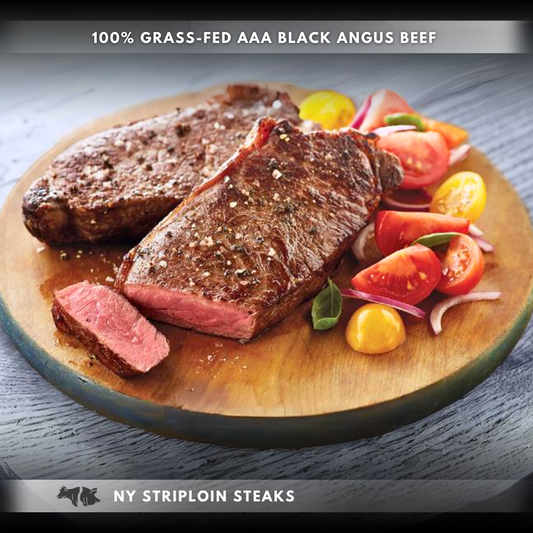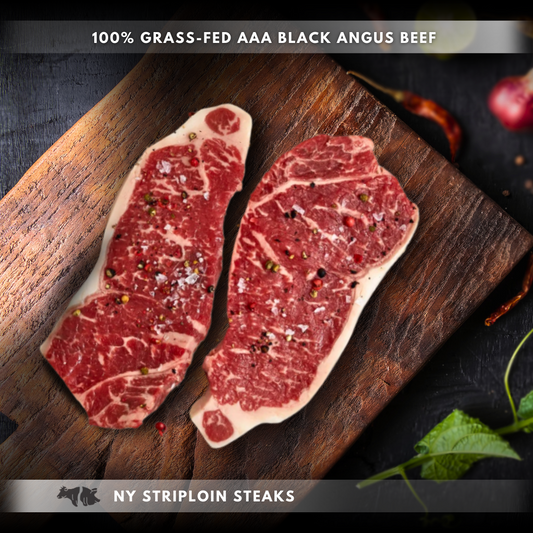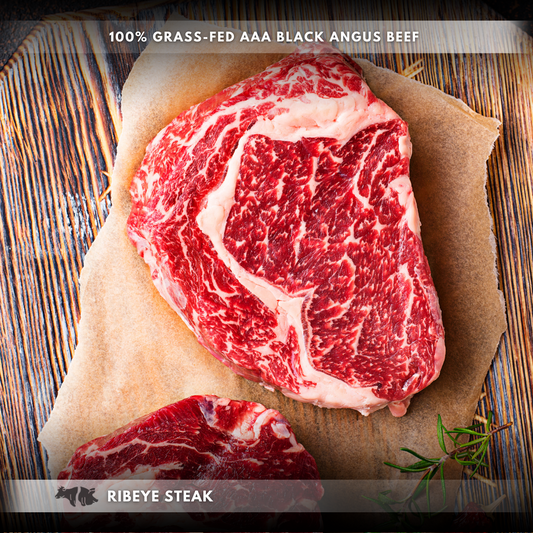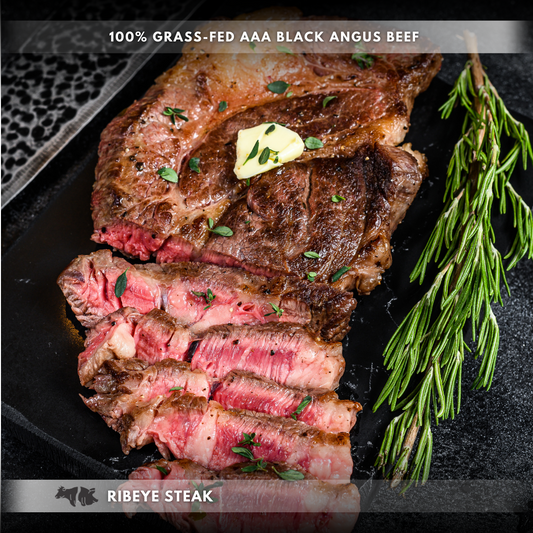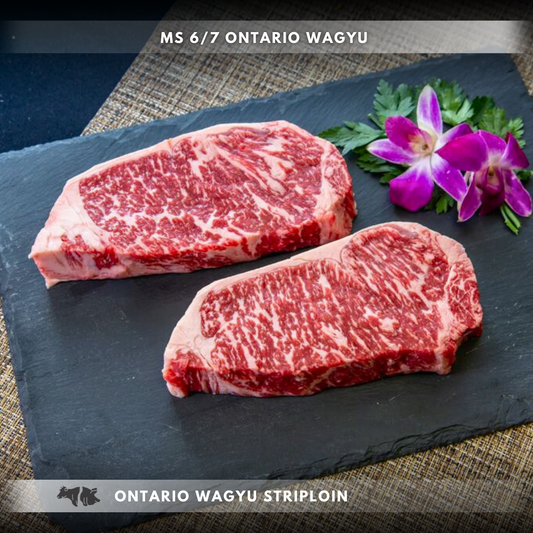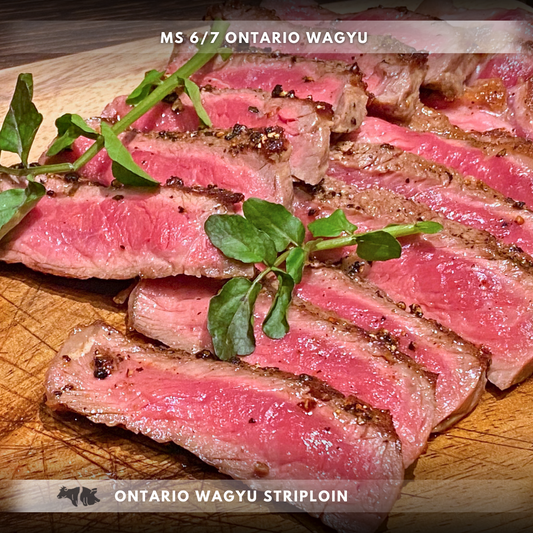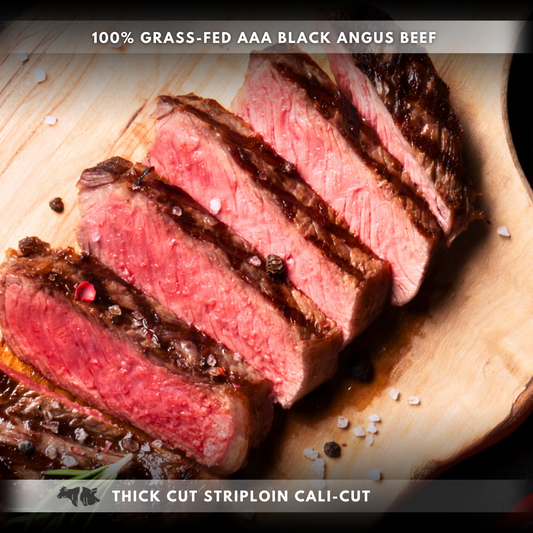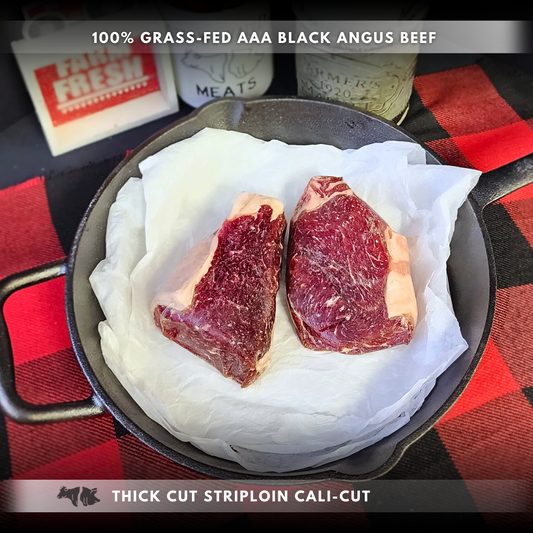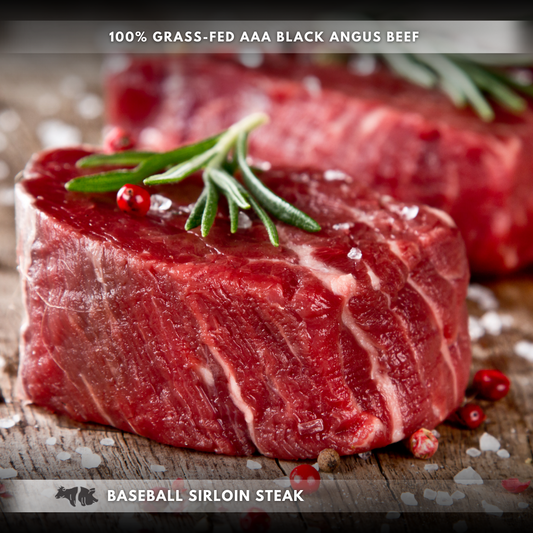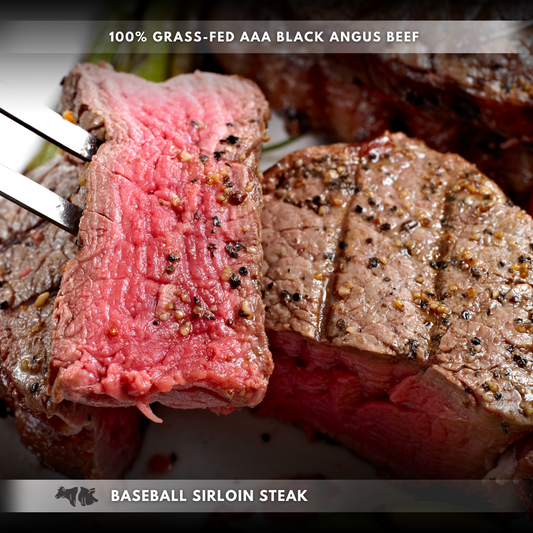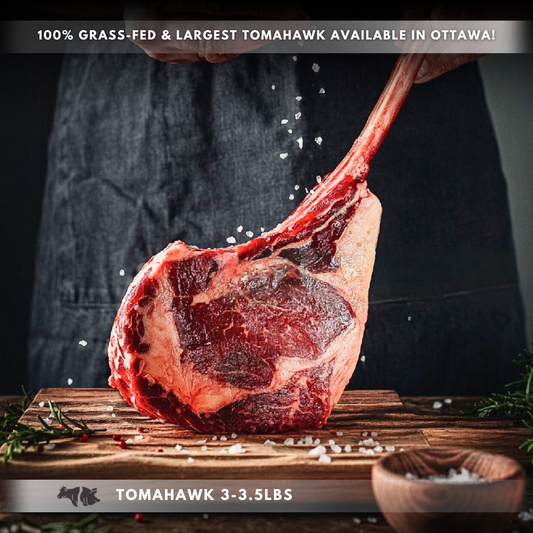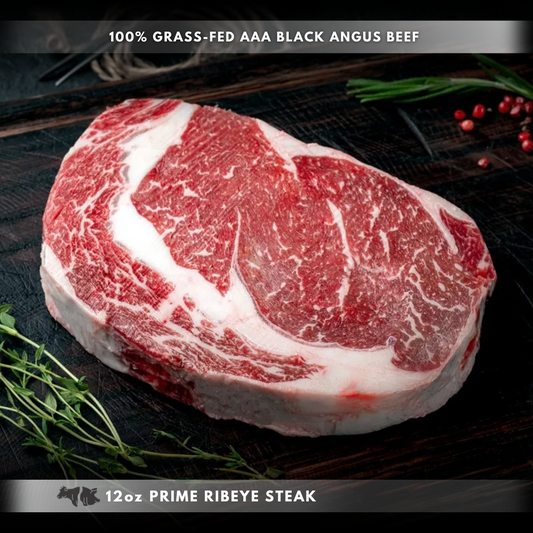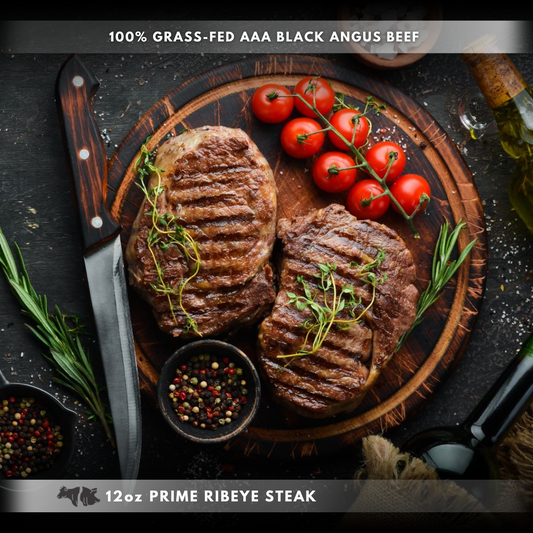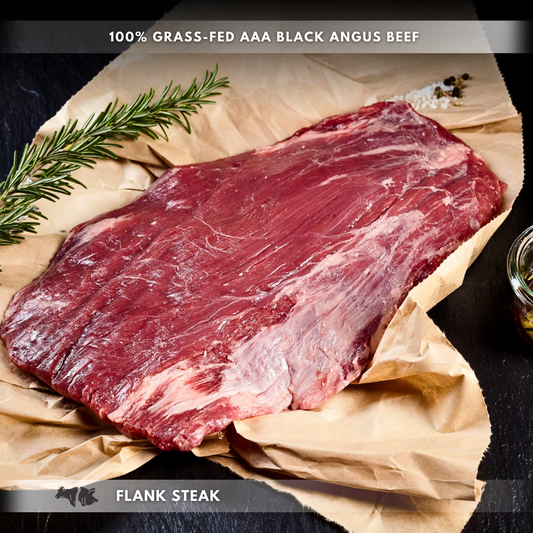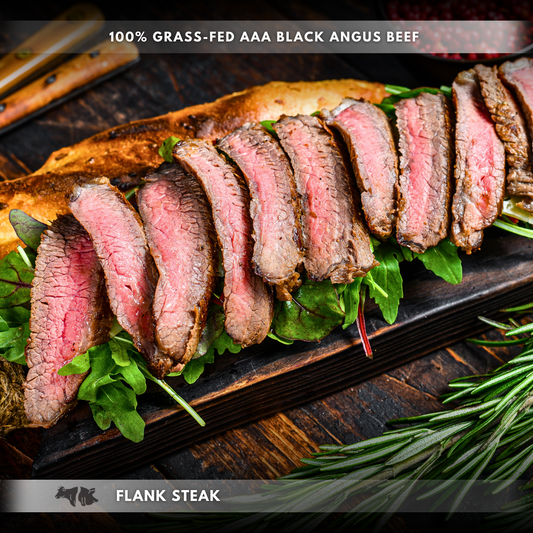Seaweed Fed Cattle | Low Emission Beef
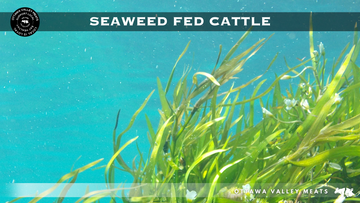
Consumers are often worried about the environmental impact of their food and the greenhouse gases emitted when they eat meat. Ottawa Valley Meats Customers are no different. But new research from UC Davis shows that adding seaweed to cattle feed reduces emissions by up to 82%. The study was Originally published here:
We have started the process of working with our farmers to add seaweed to our cattle's daily diet in order to reduce the methane produced from our cattle. We hope that by doing this, we can also provide a healthier diet for our cows as well as doing our part to reduce methane production from the Ottawa Valley Meats line of local grass fed beef.
We encourage all of our customers to ask their butchers about what they are doing to contribute to the reduction of methane gases - are they choosing producers who are doing their part? Do you know where your meat is currently coming from? Do you know if it's from a Factory Farm or local farmer you drive by every day? What do you think you can do personally RIGHT NOW to reduce the environmental impact of eating beef and continue to enjoy it knowing where your getting it and knowing we are doing everything we can to have as little negative impact as possible.
Here's what you need to know:
- Feeding cattle seaweed could reduce methane emissions as much as 82% according to new findings from researchers at UC Davis. The results published could pave the way for sustainable production of livestock worldwide.
- The study found that adding seaweed reduced methane emissions by an average of 82%, but reductions varied depending on diet and breed.
- Studies show that as little as 10oz of seaweed a day reduces saw a significant reduction in methane production
- Adding seaweed to cattle feed is cheap and could help consumers balance cost with their environmental concerns, said senior author Cathrine Leifert, a professor in UC Davis' Department of Animal Science. "Seaweed could be a sustainable and affordable alternative to reduce methane emissions from cattle," she said.
A taste-test panel found no difference between the flavor of beef from seaweed-fed cattle and a control group. Similar testing with dairy cattle showed that seaweed had no impact on the taste of milk.
The seaweed used in the study was derived from a diverse array of sources. It included kelp, as well as several species harvested from ocean-farmed beds off the coasts of France and Portugal.
Don't forget we have a variety of recipes on our website to help you prepare your meat in a more sustainable way. There are many ways to cook with grass fed beef whether it's slow braising or grilling. You can find them here: Ottawa Valley Meats Blog
Less gassy, More Sustainable
Greenhouse gases are a major cause of climate change, and methane is a potent greenhouse gas. Agriculture is responsible for 10% of greenhouse gas emissions in Canada., and half of those come from cows and other ruminant animals that belch methane and other gases throughout the day as they digest forages like grass and hay.
A growing number of people are suggesting that reducing meat consumption is one way to address climate change, but Kebreab argues that this approach could be the wrong solution.
“Only a tiny fraction of the earth is fit for crop production,” Kebreab explained. “Much more land is suitable only for grazing, so livestock plays a vital role in feeding the 10 billion people who will soon inhabit the planet. Since much of livestock’s methane emissions come from the animal itself, nutrition plays a big role in finding solutions.”
In 2018, Kebreab and Roque were able to curb methane emissions by 50% in dairy cows which was accomplished by supplementing their diet with seaweed for two weeks. The seaweed inhibited an enzyme which led to the production of methane.
In a recent study, Kebreab and Roque tested whether these reductions were sustainable over time by giving cows seaweed every day for five months.
Four times a day, the cows ate a snack from an open-air contraption that measured the methane in their breath. The results were clear: cattle whose diet is supplemented with seaweed emitted less methane overall and did not show any drop-off in efficiency over time.
“There is more work to be done, but we are very encouraged by these results,” Roque said. “We now have a clear answer to the question of whether seaweed supplements can sustainably reduce livestock methane emissions and its long term effectiveness.” Said Kebreab.
The research shows that seaweed supplements can sustainably reduce livestock methane emissions. The study has also shown that the reduction is sustainable over time, which means it could be a very effective solution for reducing greenhouse gas emissions and climate change in general.
The authors of the study suggest that further studies should be done to verify their findings, but they are confident that seaweed can play a significant role in addressing greenhouse gas emissions and climate change.
To learn more please read this article on the UC Davis site HERE.
If you have questions please email us at info@OttawaValleyMeats.com or tweet us @meatsottawa. And we look forward to answering your questions.
#lowemissionbeef #greenerplanet #eatingseaweed #cattlefeed #eatseaweedforlife
In addition, we are working on a Green Miles program that will be fully functional soon so that you can support local farmers who care about the environment and want to do something to help. #staytuned
